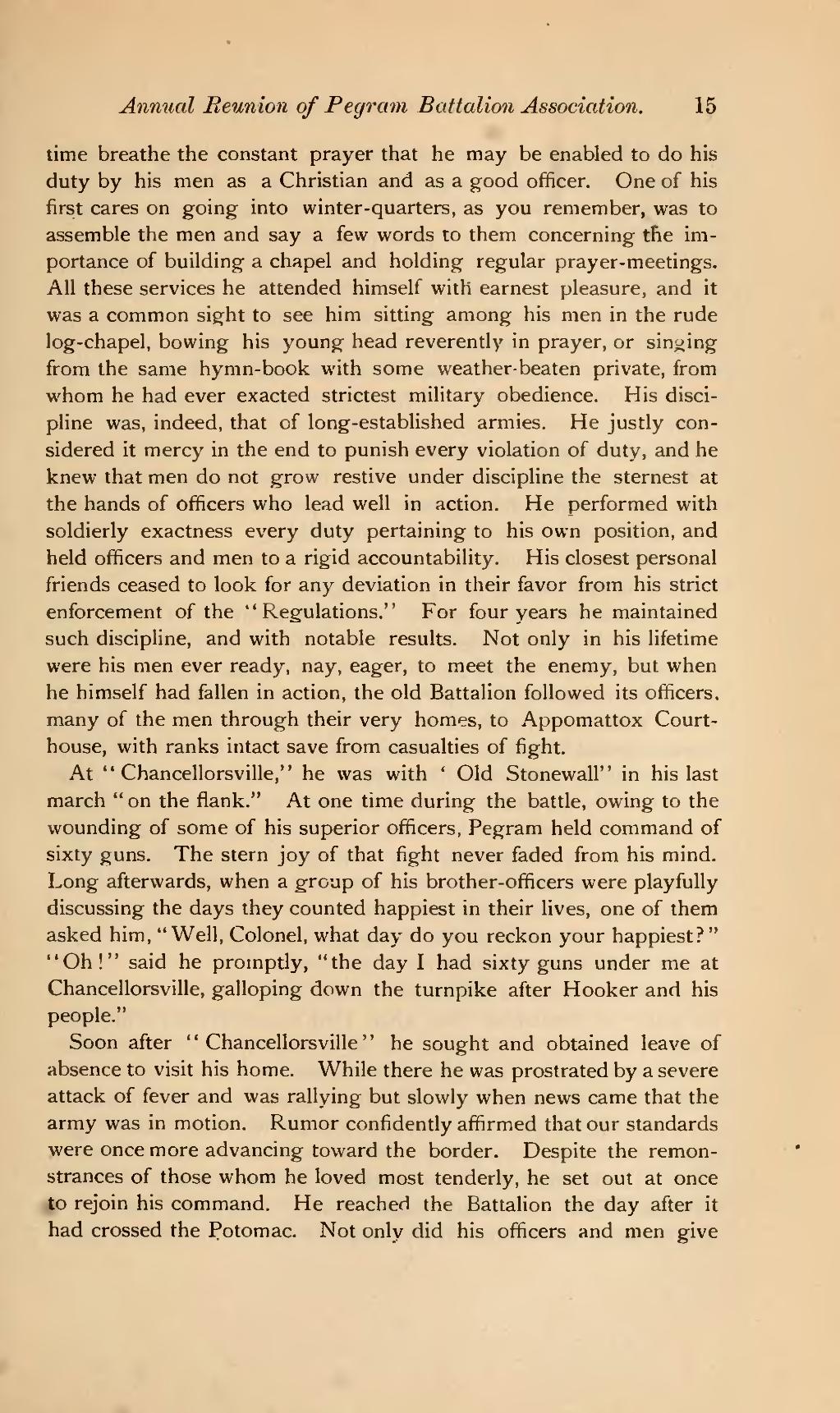Annual Reunion of Pegram Battalion Association. 15
time breathe the constant prayer that he may be enabled to do his duty by his men as a Christian and as a good officer. One of his first cares on going into winter-quarters, as you remember, was to assemble the men and say a few words to them concerning the im- portance of building a chapel and holding regular prayer-meetings. All these services he attended himself with earnest pleasure, and it was a common sight to see him sitting among his men in the rude log-chapel, bowing his young head reverently in prayer, or singing from the same hymn-book with some weather-beaten private, from whom he had ever exacted strictest military obedience. His disci- pline was, indeed, that of long-established armies. He justly con- sidered it mercy in the end to punish every violation of duty, and he knew that men do not grow restive under discipline the sternest at the hands of officers who lead well in action. He performed with soldierly exactness every duty pertaining to his own position, and held officers and men to a rigid accountability. His closest personal friends ceased to look for any deviation in their favor from his strict enforcement of the "Regulations." For four years he maintained such discipline, and with notable results. Not only in his lifetime were his men ever ready, nay, eager, to meet the enemy, but when he himself had fallen in action, the old Battalion followed its officers, many of the men through their very homes, to Appomattox Court- house, with ranks intact save from casualties of fight.
At " Chancellorsville," he was with ' Old Stonewall" in his last march "on the flank." At one time during the battle, owing to the wounding of some of his superior officers, Pegram held command of sixty guns. The stern joy of that fight never faded from his mind. Long afterwards, when a group of his brother-officers were playfully discussing the days they counted happiest in their lives, one of them asked him, "Well, Colonel, what day do you reckon your happiest?" "Oh!" said he promptly, "the day I had sixty guns under me at Chancellorsville, galloping down the turnpike after Hooker and his people."
Soon after "Chancellorsville" he sought and obtained leave of absence to visit his home. While there he was prostrated by a severe attack of fever and was rallying but slowly when news came that the army was in motion. Rumor confidently affirmed that our standards were once more advancing toward the border. Despite the remon- strances of those whom he loved most tenderly, he set out at once to rejoin his command. He reached the Battalion the day after it had crossed the Potomac. Not only did his officers and men give
